Harnessing Referent Power at the Workplace
In the sphere of leadership and influence, there are multiple sources of power that individuals can utilize to guide and inspire their coworkers. Referent power is based on personal qualities, charisma, and the capacity to establish strong connections with others. This blog will examine the dynamics, definition, and profound implications of referent power in the workplace. We will examine real-world examples, research, and statistics from India to demonstrate its relevance and application in the contemporary workplace.
What is Referent Power?
In 1959, social psychologists John French and Bertram Raven identified five sources of influence, including referent power. It refers to the influence a person has over others as a result of their charisma, likability, and the respect and reverence they command. In contrast to other forms of power, which may be based on authority or resources, it is based on personal characteristics and relationships.

Referent Leadership Definition
Referent leadership, which is often associated with referent power, is a leadership style that is defined by a leader’s capacity to sway people via the rapport, trust, and affection they build. This power enables leaders to inspire and motivate their teams, foster trust and loyalty, and navigate intricate interpersonal dynamics.
The Impact of Referent Power in Leadership
- Inspirational Leadership: Referent leaders possess the innate ability to deeply and intrinsically inspire and motivate their colleagues. Their impact goes beyond the exchange of rewards or penalties in a transactional manner.
- Building Trust and Loyalty: Followers are more likely to give their leaders their trust and loyalty. This frequently translates into increased dedication to company objectives and improved staff retention.
- Adaptability and Openness: People find referent leaders to be personable and receptive to criticism. Their capacity to adjust and their readiness to change enable them to function well in a fast-paced workplace.
- Effective Communication: They have excellent communication skills, which allow them to present their ideas, goals, and vision in an engaging and approachable way.
- Conflict Resolution: Because of the rapport and trust they have built, leaders with great referent authority are able to arbitrate disputes within the team in an efficient manner.

Referent Power in the Indian Workplace
Due to the cultural importance of relationships and personal connections in India, the significance is particularly pronounced. It manifests itself in various workplace aspects:
1.Team Development
Those who possess referent power excel at team development. They foster comradery and unity among team members, thereby facilitating collaboration and the accomplishment of shared objectives.
2. Employee Involvement
In workplaces where referent power is significant, employees are more engaged and committed to their work. They are motivated to contribute to the team’s success because they have a strong sense of belonging.
3.Conflict Management
Strong referent power enables leaders to effectively mediate workplace conflicts. Their approachability, empathy, and ability to build trust enable them to be effective problem solvers who contribute to a harmonious workplace.
4.Example-Setting
Referent power-wielding leaders serve as role models. Their conduct, work ethic, and values serve as a model for others, thereby nurturing a positive organizational culture.
Real-World Examples of Referent Power
This is best exemplified by Mahatma Gandhi, the Father of the Indian Nation. His charisma and dedication to nonviolence influenced countless people, elevating him to the position of a beloved leader who had widespread respect.
The former chairman of Tata Group, Ratan Tata, is widely regarded as a figure of authority. Within the company and out in the community, people looked up to him for his ethical leadership and his dedication to CSR.
Former Indian President Dr. A.P.J. Abdul Kalam was held in high regard for his visionary leadership and the positive example he set for his country. Because of his modesty and genuine closeness to the young people, he had tremendous referent power.
Research and Statistics on Referent Power in India
The Great Place to Work Institute’s study discovered that organizations in India achieve higher employee engagement when their leaders are perceived as inspirational and ethical.
LinkedIn conducted a survey in India, which uncovered that over 85 percent of professionals consider referent leadership, characterized by trust and mutual respect, to be crucial for fostering a positive work environment.
A study published in the Journal of Management Development discovered that employees in India tend to stay longer in organizations where leaders have high referent power, as they sense a stronger connection to the organizational values.
According to a recent report by the National Association of Software and Service Companies (NASSCOM), executives with referent power are more effective at navigating complex and diverse teams in the Indian IT sector.

Nurturing Referent Power
Here are some tactics to help those who want to develop referent power:
- Authenticity: Stay loyal to who you are. Referent power is based on authenticity. Sincere and real people tend to attract others.
- Empathy: Exhibit empathy by being aware of and considerate of the thoughts, feelings, and viewpoints of others. This fosters rapport and trust.
- Effective Communication: Practice active listening and other communication techniques. It’s crucial to be able to communicate your thoughts in an engaging and straightforward manner.
- Inclusivity: Establish a welcoming atmosphere where each team member is treated with respect and given a voice. This increases your referent power and gives you a sense of community.
- Setting a positive example: Take the lead. Your actions and behaviors establish the benchmark for you to lead.
Conclusion
It is an influential force in leadership and the contemporary workplace. It is based on individual qualities and the capacity to build strong relationships with people. Research and statistics demonstrate the beneficial effects of trust and connections on worker engagement and organizational success, making it far more important in India, where there is a strong emphasis on these factors.
Aspiring leaders can use referent leadership to establish productive, joyful, and inspirational work environments. By demonstrating authenticity, empathy, skillful communication, inclusivity, and positive role modelling, people can help establish productive work environments that foster inspiration, trust, and respect.
DeiJobs partners with employers who prioritize inclusivity and recognize the strength that diverse perspectives bring to the table. These inclusive organizations actively seek to create a workforce that mirrors the rich tapestry of India.





